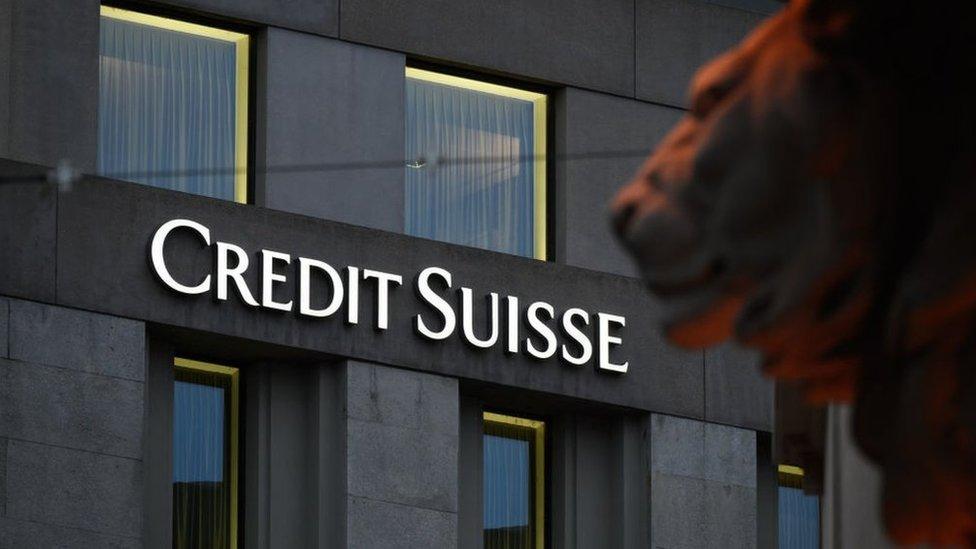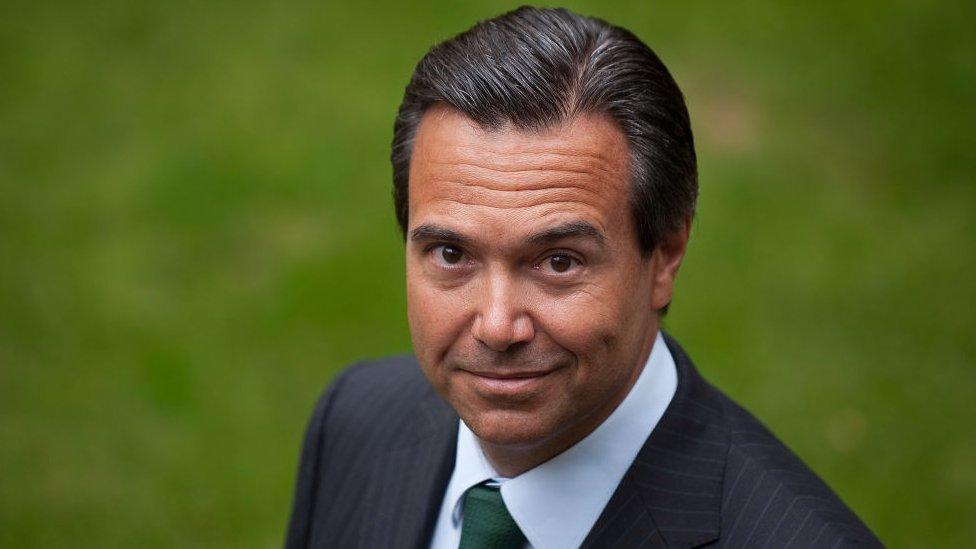Credit Suisse denies wrongdoing after big banking data leak
- Published

Credit Suisse has hit out after a massive data leak has brought to light the hidden wealth of several clients of the bank.
Data on more than 18,000 bank accounts, holding more than $100bn (£73.6bn), was leaked to German newspaper Süddeutsche Zeitung, external by a whistleblower.
It includes personal, shared and corporate accounts, as well as those opened as far back as the 1940s.
Nearly 50 media organisations have spent months poring over the data.
In their investigations, they suggest they have found evidence Credit Suisse accounts had been used by clients involved in serious crimes such as money laundering or drug trafficking.
But on Sunday, the Swiss bank said it strongly rejected the allegations and insinuations about its alleged business practices or lack of due diligence.
"The matters presented are predominantly historical, in some cases dating back as far as the 1940s, and the accounts of these matters are based on partial, inaccurate, or selective information taken out of context", it said.
In reports published by media organisations such as The Guardian and the New York Times, it has been claimed the bank opened or maintained accounts for high-risk clients, including criminals and individuals involved in human trafficking.
Holding a Swiss account is not illegal and the leak also reportedly contained data of clients who had done nothing wrong.
The data was shared with more than 40 media organisations around the world by non-profit journalism group, the Organized Crime and Corruption Reporting Project.
It includes bank accounts dating back decades. The majority were opened from 2000 onwards, although the bank's current operations are not included.
Credit Suisse also said on Sunday that it had reviewed a large volume of accounts potentially associated with the matters raised.
"Approximately 90% of the reviewed accounts are today closed or were in the process of closure prior to receipt of the press inquiries, of which over 60% were closed before 2015," it said, although it would not comment on specific clients mentioned.
The bank added it was "deeply aware of its responsibility to clients and the financial system as a whole to ensure that the highest standards of conduct are upheld".
"These media allegations appear to be a concerted effort to discredit not only the bank but the Swiss financial market-place as a whole, which has undergone significant changes over the last several years," it said.
'Shameful role'
In a statement published by German newspaper Süddeutsche Zeitung, the anonymous source explained their motivation for leaking the records more than a year ago.
"I believe that Swiss banking secrecy laws are immoral. The pretext of protecting financial privacy is merely a fig leaf covering the shameful role of Swiss banks as collaborators of tax evaders," they wrote.
It is not known if the whistleblower is an individual or a group.
They also acknowledged "having an offshore Swiss bank account does not necessarily imply tax evasion or any other financial crime".
Credit Suisse pointed out it had taken "significant additional measures over the last decade, including considerable further investments in combating financial crime".
It follows other scandals for the Swiss bank, including the departure of two of its top executives after allegedly breaking Covid regulations and spying on former staff.
Related topics
- Published25 January 2022

- Published21 January 2022
